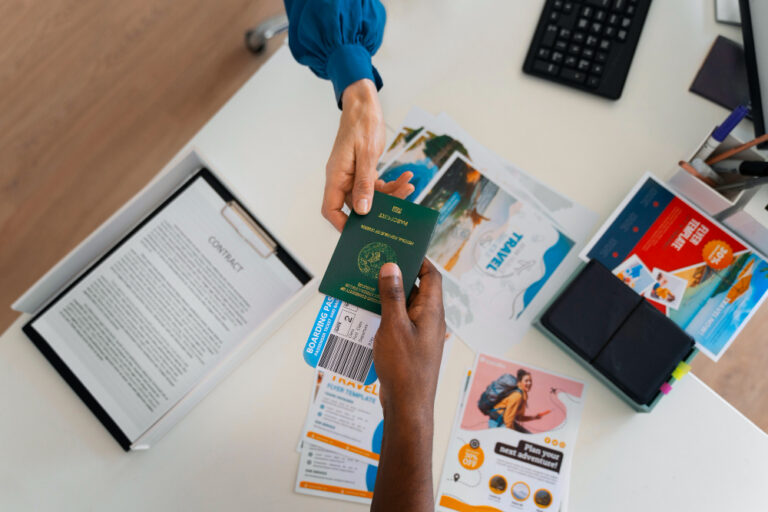Bringing goods into Nigeria is a business opportunity that attracts both local entrepreneurs and international traders. From cars and electronics to pharmaceuticals and textiles, the demand for imported products continues to grow. However, before goods can legally enter the country, importers must understand one key requirement—the import license. Missing this step can lead to costly delays, fines, or even confiscation of goods at the port.
This guide breaks down the import license requirements in Nigeria, the procedures involved, and practical tips to help importers navigate the process with confidence.
What Is an Import License?
An import license is an official document issued by the Nigerian government that grants permission to bring specific goods into the country. It is both a regulatory and protective tool designed to:
-
Regulate trade and align imports with Nigeria’s economic policies.
-
Ensure safety and quality control by keeping out harmful or substandard products.
-
Protect local industries from being overwhelmed by foreign competition.
-
Generate government revenue through customs duties and related taxes.
The responsibility for enforcing these requirements falls mainly on the Nigerian Customs Service (NCS), but other agencies are also involved depending on the goods in question.
Goods That Require an Import License in Nigeria
Not all goods require a license, but certain categories are strictly regulated. Common examples include:
-
Pharmaceuticals and medicines – regulated by NAFDAC (National Agency for Food and Drug Administration and Control).
-
Agricultural products and chemicals – under the Federal Ministry of Agriculture.
-
Used vehicles and machinery.
-
Textiles and clothing.
-
Explosives and hazardous materials.
-
Electronics and motor vehicle spare parts.
Before importing, it’s essential to confirm whether your product category requires an import license with the relevant authority.
Step-by-Step Guide to Obtaining an Import License
Getting an import license in Nigeria involves multiple stages and coordination with different agencies. Here’s how the process typically works:
1. Register Your Business
Every importer must operate a legally registered business in Nigeria. This requires a Certificate of Incorporation (for companies) or proof of registration for sole proprietors.
2. Obtain a Tax Identification Number (TIN)
A TIN is mandatory for customs clearance and payment of duties.
3. Register with the Nigerian Export Promotion Council (NEPC)
Although primarily focused on exports, registration with NEPC may be necessary for recognition as a legitimate trader.
4. Apply Through Relevant Agencies
Depending on your product type, apply to the appropriate agency:
-
Nigerian Customs Service (NCS)
-
NAFDAC (for food, drugs, cosmetics, and medical items)
-
Standards Organization of Nigeria (SON) for regulated goods under SONCAP.
-
Nigerian Ports Authority (NPA) for shipping and clearance procedures.
5. Submit Required Documentation
Documents often requested include:
-
Completed application form.
-
Certificate of Incorporation or business registration.
-
Tax Identification Number (TIN).
-
Proforma invoice or purchase order.
-
Bill of lading or airway bill.
-
Product specifications and certificates of conformity.
-
NAFDAC number (for pharmaceuticals).
6. Pay Applicable Fees and Duties
Payment of customs duties and regulatory fees is mandatory before clearance.
7. Inspection and Verification
Goods are inspected to ensure compliance with Nigerian safety and quality standards.
8. Receive Your Import License
Once all steps are complete and approvals are granted, the license is issued, allowing importation to proceed.
Key Considerations for Importers
-
Compliance with Customs Regulations: Importers must follow Nigerian customs laws on tariffs, documentation, and reporting.
-
Special Permits for Restricted Goods: Some goods (e.g., food, drugs, and cosmetics) require additional permits such as NAFDAC approval or SONCAP certification.
-
Renewals: Import licenses usually have expiration dates, and importers must apply for renewals on time.
Challenges in the Licensing Process
Many importers face difficulties such as:
-
Complex procedures due to multiple agencies.
-
High documentation requirements.
-
Delays caused by bureaucracy.
-
Frequent regulatory changes that require constant monitoring.
Hiring a licensed customs broker or trade consultant can help simplify the process and reduce mistakes.
Impact on Nigerian Trade and Economy
When effectively managed, import license requirements help Nigeria by:
-
Improving consumer safety and product quality.
-
Boosting government revenue through import duties.
-
Supporting local industries by regulating competition.
However, poor implementation or lack of clarity in licensing can discourage foreign investment and disrupt trade efficiency.
Summary
Importing goods into Nigeria can be highly profitable, but compliance with import license requirements is non-negotiable. To recap:
-
Confirm if your product requires a license.
-
Register your business and obtain a TIN.
-
Apply through relevant agencies like NCS, NAFDAC, or SON.
-
Provide complete documentation.
-
Pay required fees and undergo inspection.
Staying updated with regulatory changes and working with experts ensures a smooth process and helps avoid costly setbacks.


